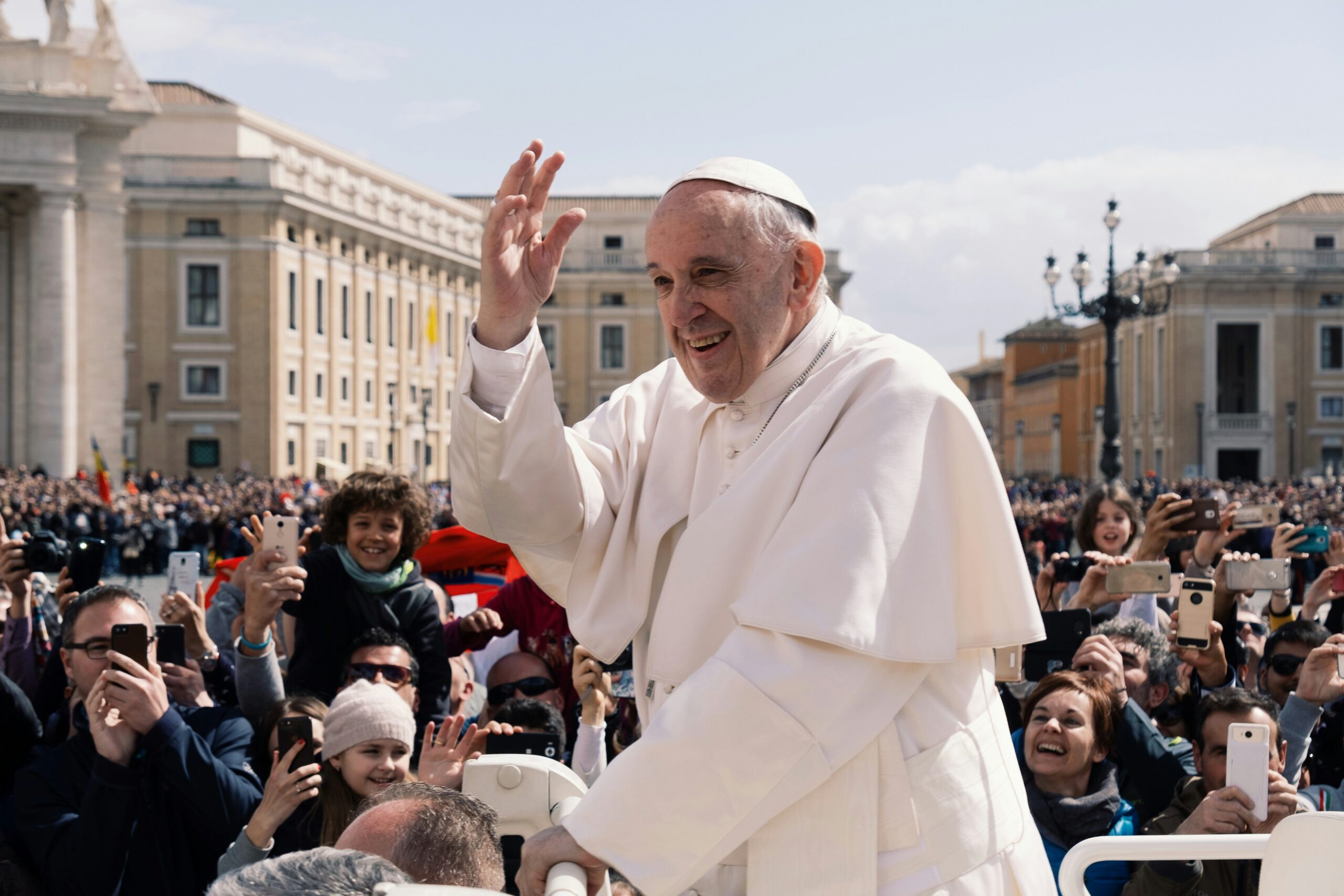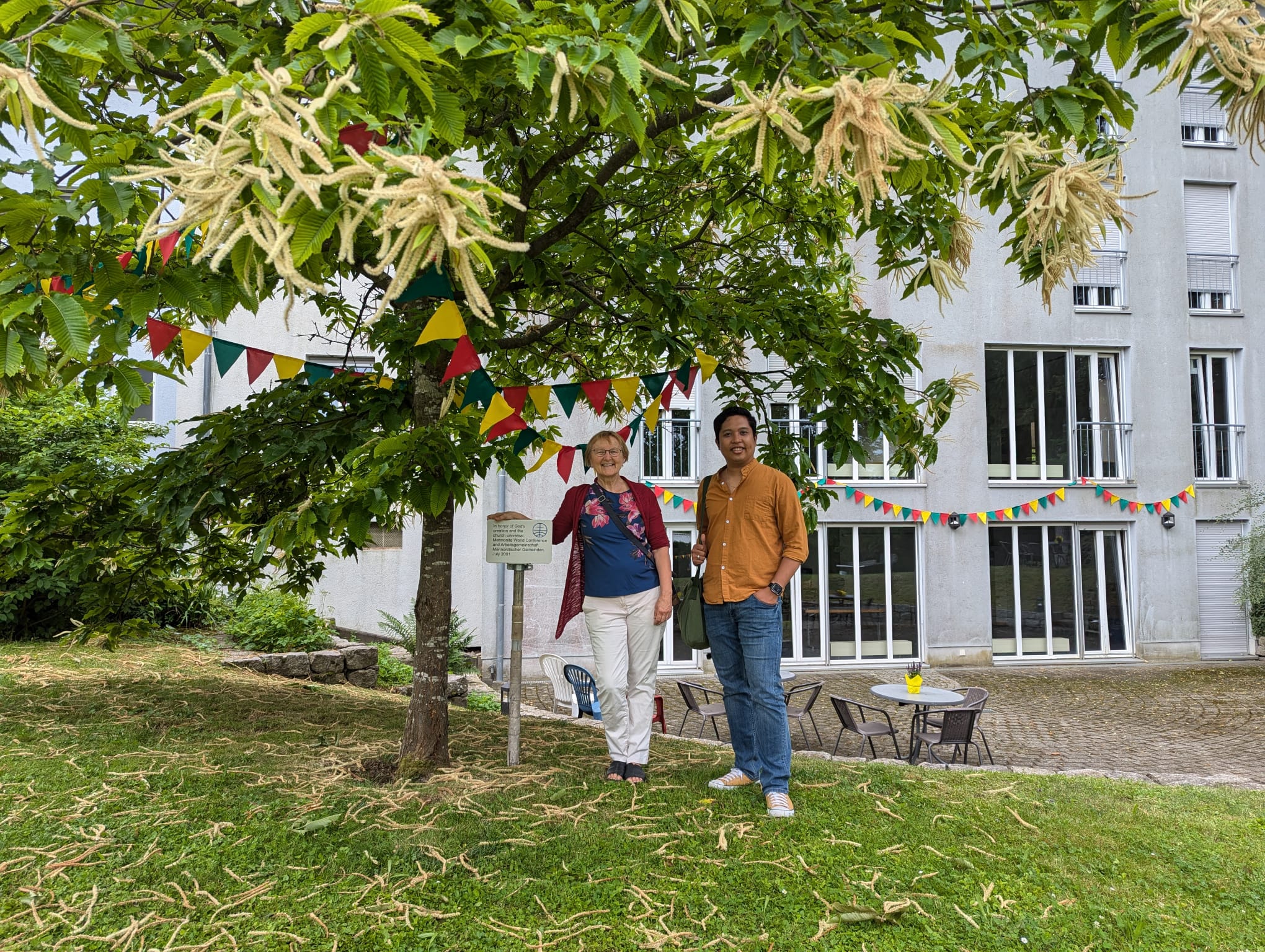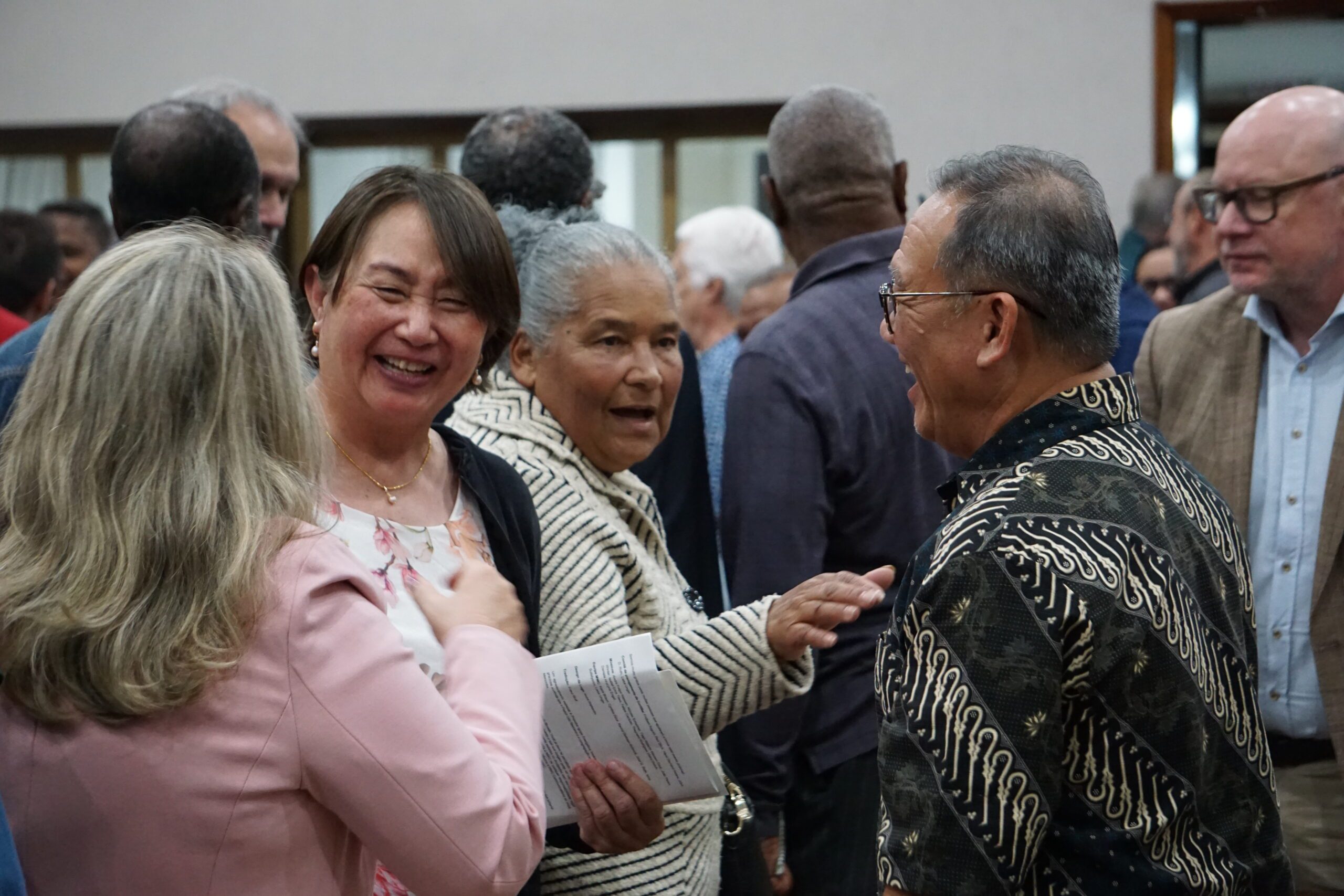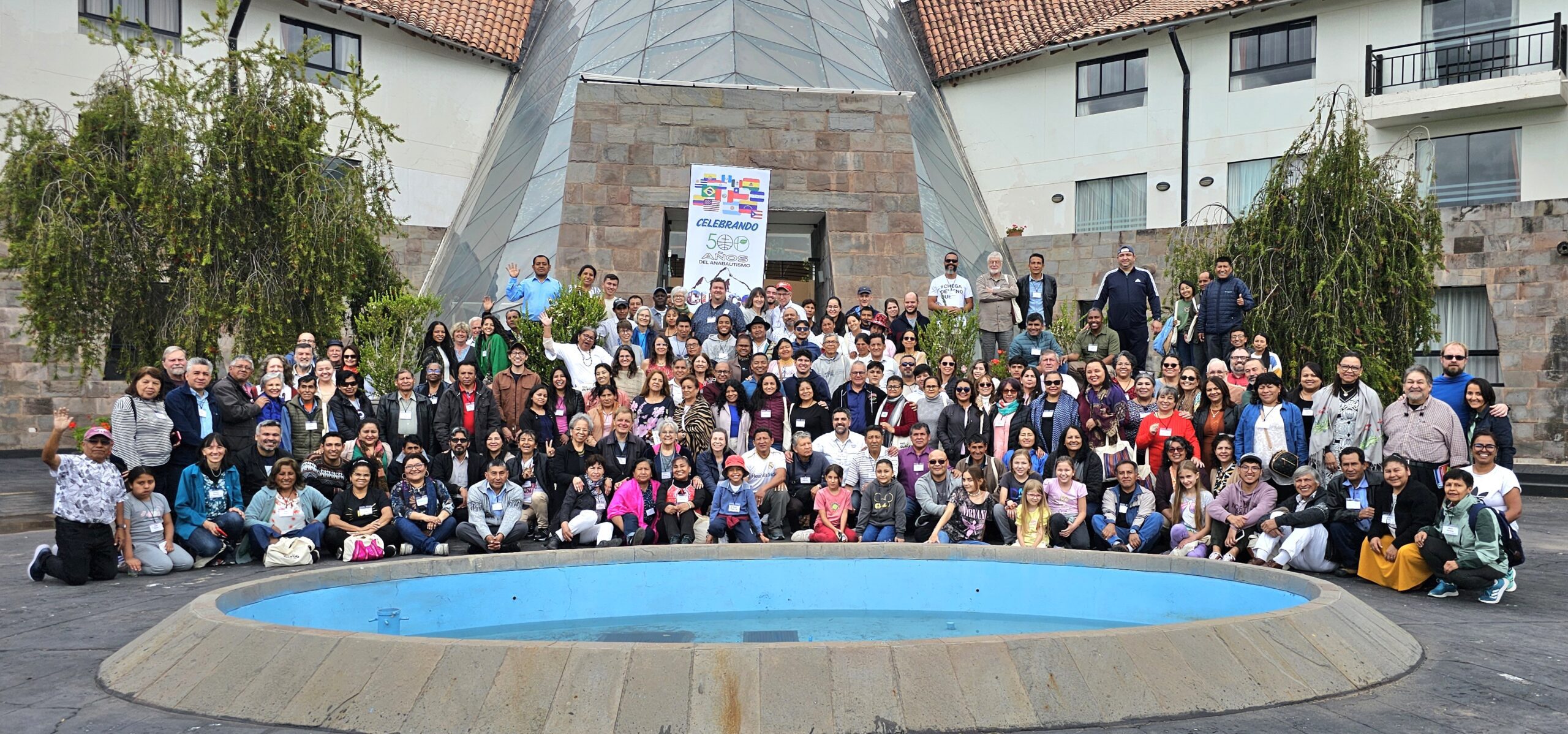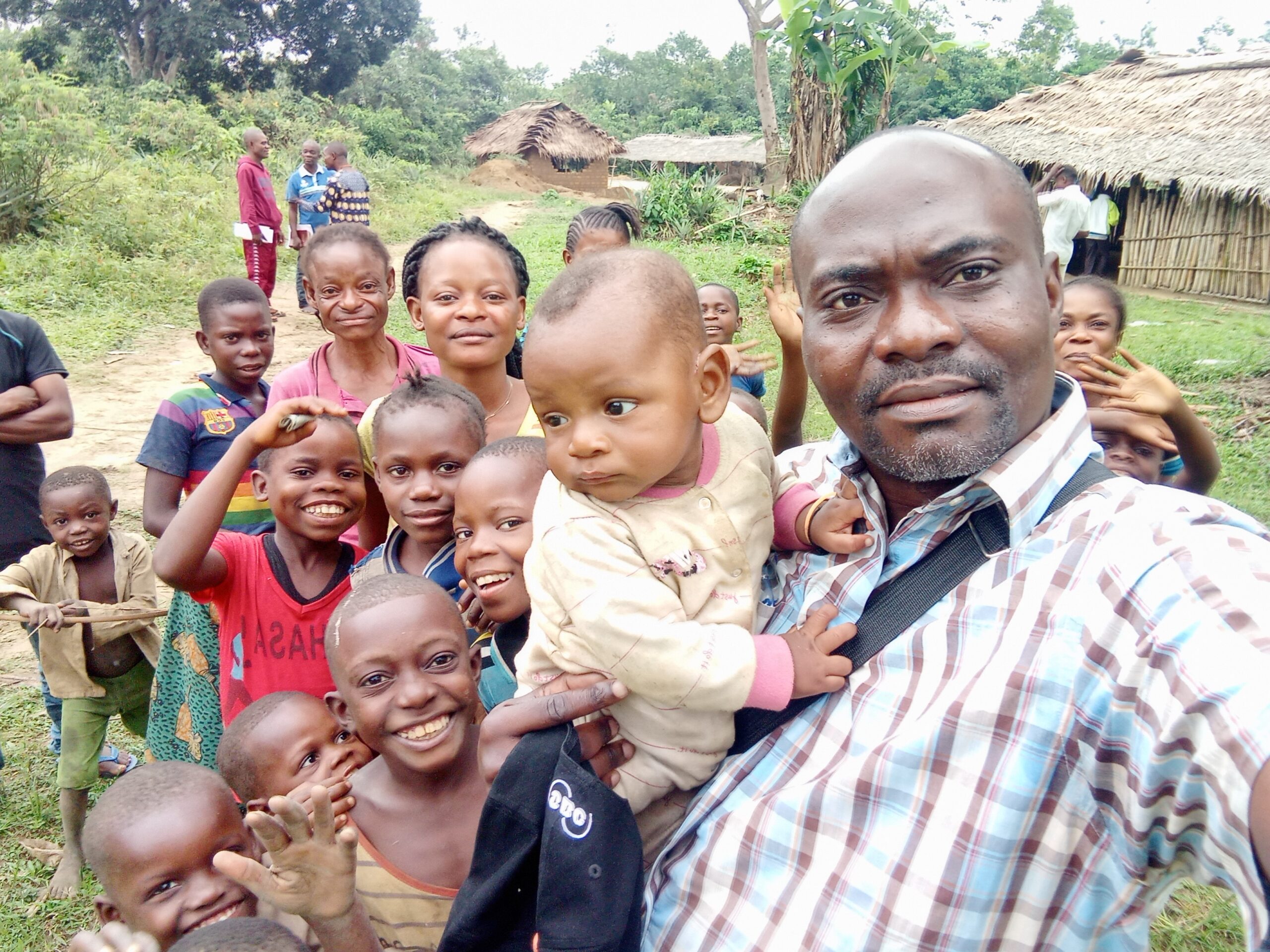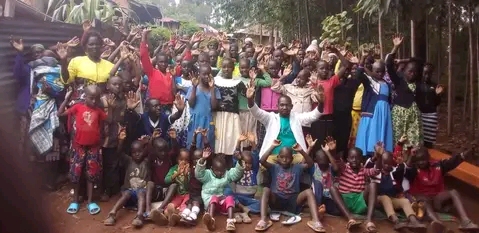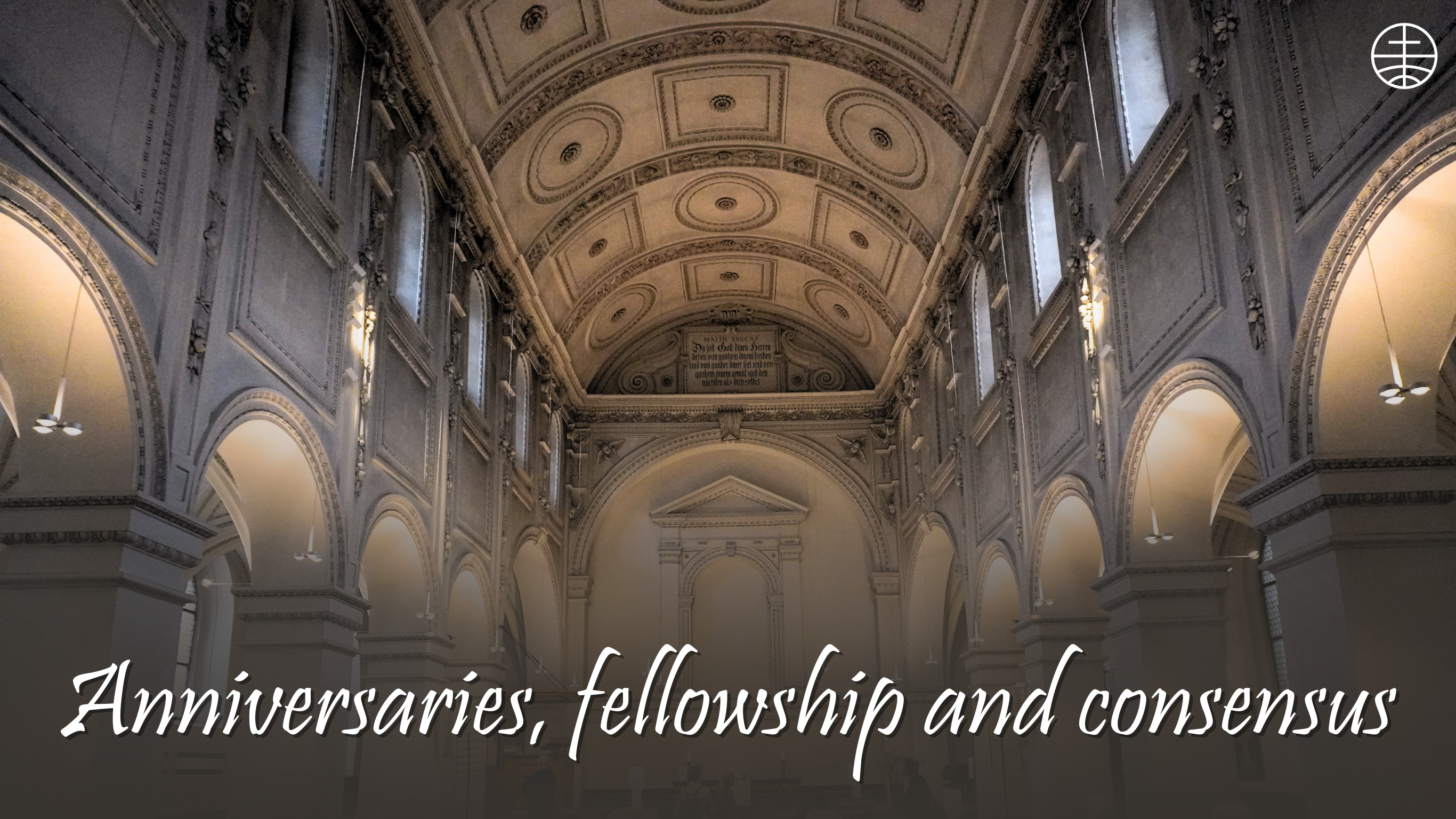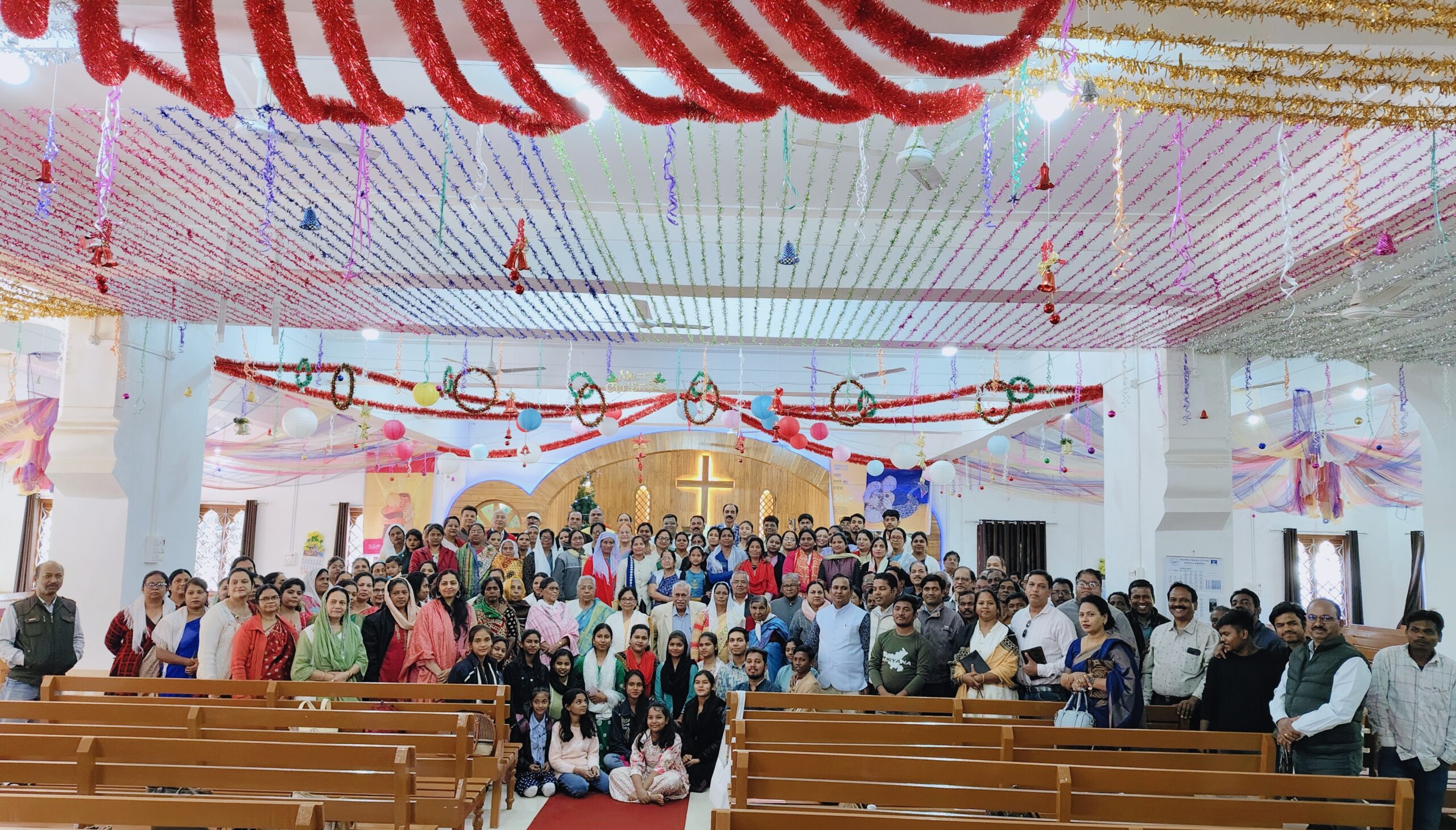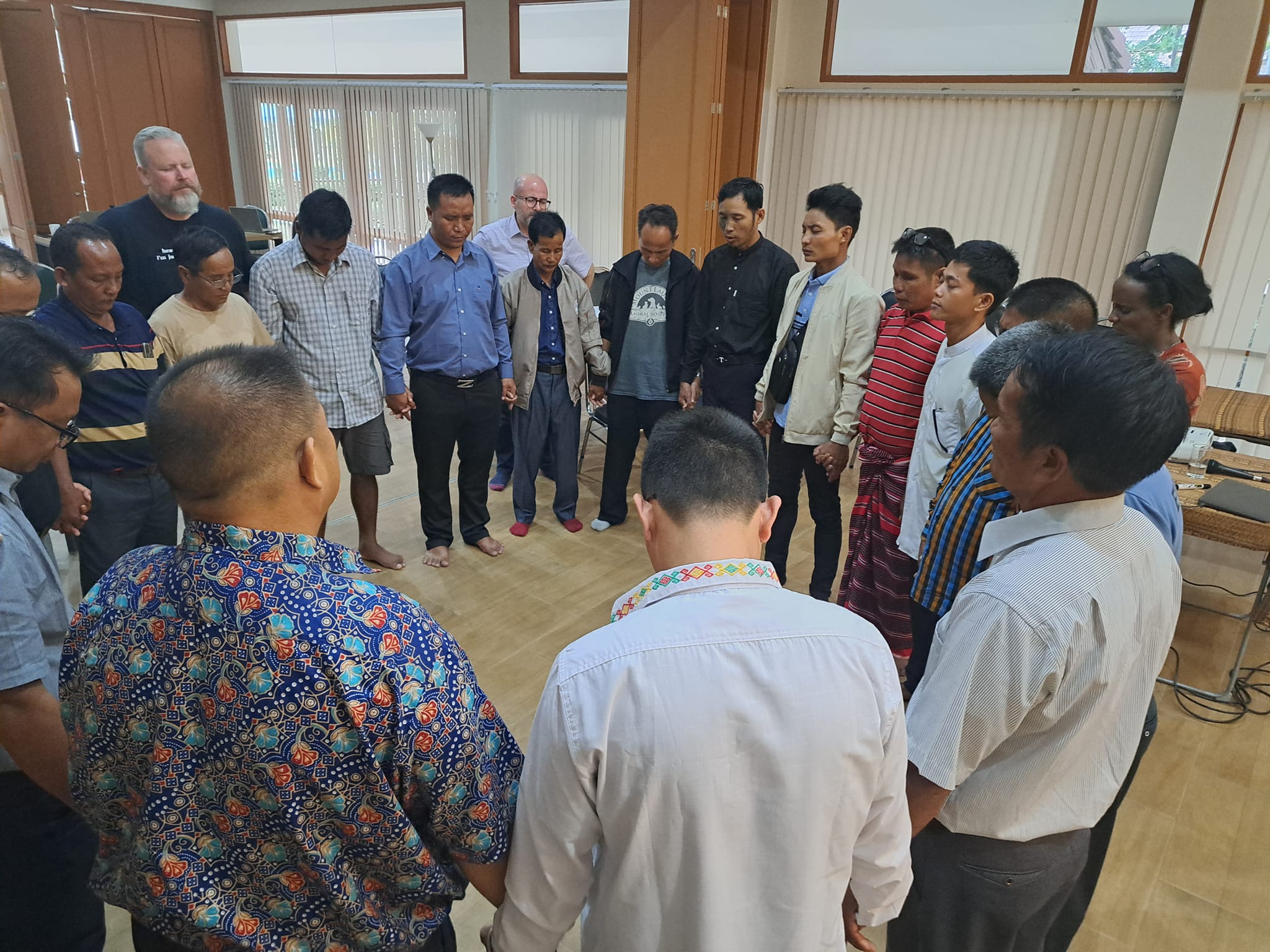-
In memoriam: Pope Francis (1936-2025)
Photo: Ashwin Vaswani/Unsplash Mennonite World Conference joins Catholics and other faith communities across the world in mourning the loss of Pope Francis, who died on 21 April 2025, at the age of 88. He had been recovering at his residence Domus Sanctae Marthae after hospitalization for bilateral pneumonia. “With gratitude, we remember the life of
-
General Council leaves a mark
At a prayer meeting, a Mennonite World Conference staff member prayed that the presence of Anabaptists gathered in Germany for General Council meetings would leave a mark. Although the prayer was to leave behind the fragrance of Christ, there will also be a living memento of Mennonite World Conference’s visit. The Executive Committee, Commissions, Creation
-
Celebrate 100 years of unity
A centenary only comes around every 100 years! Mennonite World Conference is celebrating their 100th anniversary with a worship service and reception in Schwäbish Gmünd, Germany, 25 May 2025. “We hope Anabaptists will be able to make the journey to Schönblick from hundreds of kilometres in each direction around Europe to celebrate this momentous anniversary
-
Trails of blood, sweat and tears
Celebrate, equip, worship: 500 years of Anabaptism Churches around the world are marking the 500th anniversary of Anabaptism with lectures, hymn sings and even regional events. MWC member church Iglesia Evangélica Menonita del Perú hosted “Celebrar, equipar, adorar” in Cusco, Peru 18-22 January 2025 to mark 500 years of Anabaptism. Church members gathered for the
-
Building peace between Bantu and Batwa
Alarming situation: discrimination and violence “We understand that God doesn’t discriminate,” says Nathan Mudiji, “but that before God, everyone must acknowledge their sin and do their best to repair the relationship broken because of sin.” In the DRC, the Batwa (an indigenous people mainly settled in the Equateur and Mai-Ndombe provinces), suffer discrimination and inhumane
-
Activities for thinkers and movers
There will be something for everyone at The Courage to Love, a one-day event to commemorate the 500th anniversary of Anabaptism, 29 May 2025. Activities for the registration-free event in Zurich will include a panel discussion and a “story trail.” A world on fire “Most early Anabaptists advocated for nonviolent witness in a context of
-
Collaborative Anabaptist response to DRC crisis
“We are deprived of the Bibles, water, soaps and even food,” writes a representative of the youth organization of a Mennonite Brethren church in Bukavu in the Democratic Republic of the Congo. “We are soliciting the accompaniment of your prayers and materials.” Mennonite World Conference has convened an inter-Anabaptist task force to respond to the
-
Join our anniversary campaign
Marking 100 years of living out unity in MWC through photos, music, trees and more Following Jesus, living out unity, building peace. It’s a new tagline for the mission we’ve always carried as Anabaptists. This is a momentous year with two anniversaries for Mennonite World Conference: Five hundred years of the Anabaptist movement; and 100
-
Four peacebuilding stories in fifth film
“We live in a complicated world. Erosion of trust and breakdown in relationships are all too common. The good news is that as abundant as conflict may be, so is the commitment within Anabaptist Mennonite communities around the world to follow Jesus’ call to work for justice and to make peace,” says Max Wiedmer, producer
-
Anniversaries, fellowship and consensus
Around the world, Anabaptists are marking 500 years of our Jesus-following movement with worship services, historical lectures and regional gatherings. For Mennonite World Conference (MWC), the anniversary year coincides with the triennial meeting of the General Council. Additionally, 2025 is a double anniversary: it also marks 100 years of MWC drawing together Anabaptists into one
-
Courage to love those who are different
“The love for Jesus Christ inspires us and motivates us to overcome all kinds of fear,” said Sushant Nand. The International Exchange Program coordinator and project officer with Mennonite Central Committee, India, spoke on Anabaptist World Fellowship Sunday 2025 at Mennonite Church Korba, a unit church of Bhartiya General Conference Mennonite Church, India. “The early
-
Yesterday’s martyrs inspire those who suffer today
“Their commitment to passing down the message of peace and the gospel inspires me to live a sacrificial life for peace.” Stories of the early Anabaptist martyrs have shaped and inspired Mennonites around the world for 500 years. They continue to do so for suffering pastors in Myanmar, like the one quoted above. From 25-29
